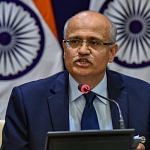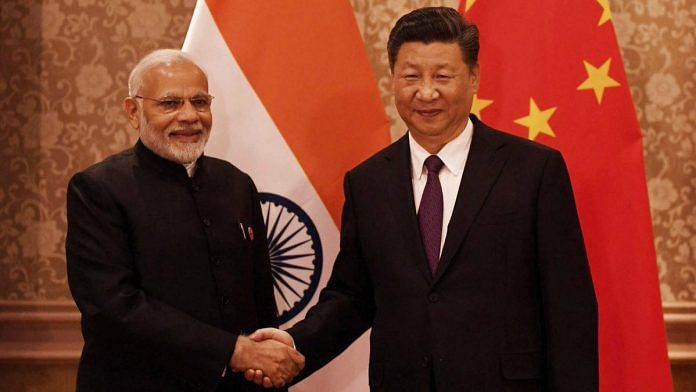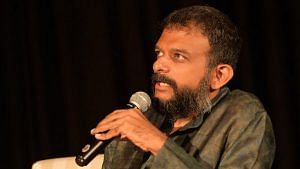Unequal Spaces, Hidden Power
TM Krishna | Musician and the author of Sebastian And Sons: A Brief History of Mridangam Makers
The Indian Express
Responding to Jaggi Vasudev’s claim that he is politically left, Krishna writes that Vasudev’s understanding of the term is flawed. To prove his point, Vasudev had said that at his Isha Yoga Center, “nobody is asking how much you have, your religion, caste, where you come from, who your father is.” Krishna argues that being left comes in various shades, but at its core it is grappling with issues of religion, caste, gender, political and economic marginalisation. “So, by claiming that nobody is asked about their religion, caste etc, Vasudev is only reiterating the fact that his Center is a perfect example of the upper-caste privileged milieu where markers of discrimination are brushed under the carpet”
A migrant’s voice: ‘In the city I feel no fear… there is nothing in the village’
Shabnam | A migrant worker trying to get home to Bulandshahr or Faridabad from Allahabad
The Indian Express
Shabnam, who used to work as a cook in Allahabad and earn Rs 8,000 a month with free lodging and food, is now struggling to get to either of her sisters, who live in Bulandshahr or Faridabad. Recounting her hardships, not only in lockdown but even as a child, she writes that her brothers don’t speak to her because she divorced her abusive husband and will therefore not help her come home. “I want a life where I can work, tire myself out, sleep. Dhyan bat jaata hai (you can take your mind off your troubles). Gaaon toh hamein achcha lagta hi nahin (there is nothing of the village that I miss in the city).”

The changing nature of Chinese diplomacy
Vijay Gokhale | Former Foreign Secretary of India and former Ambassador to China
The Hindu
With tensions mounting between India and China, Gokhale explains that the country’s earlier strategy of persuasion and compromise has been replaced with unilateralism and a one-size fits all approach. “China, post-COVID-19, will be operating in a very different external environment. It may wish to recall what Kissinger told the White House staff in July 1971 after his trip to the country: ‘The Chinese style is impressive. They Chinese have a sense of the longer trends and focus on that, not on ploymanship.’”
The government slipped in not focusing on demand
Avishkar Singhvi | Advocate in the Supreme Court
Hindustan Times
Singhvi argues that one must critically scrutinise whether the Rs 20 lakh crore economic package for Covid-19 relief will actually help the vulnerable sections of the population and sectors in distress. Some of the announcements are nothing more than “tweaking old policy or to amending it for the medium or even long-term, by when it may well be too late. All this appears to do nothing for sectoral victims, waiting anxiously for direct injections.” he adds that direct income support, with mechanisms to ensure prevention of leakages and misappropriation, remains the ideal way out. “We need equitable distribution and verification of the delivery to the intended class . Income-based distribution has to take place by payment of funds into the Jan Dhan accounts.”

How the covid pandemic could reshape life in our cities
Rahul Matthan | Partner at Trilegal
Mint
The author throws light on how the demand to redesign urban spaces may arise in the post-pandemic world since, even though “the efficiency of a city is a function of its density”, the cities worst hit by Covid are the most densely populated. With working from home having proved to be not only possible but in many ways, successful, cities have a remarkable opportunity to promote a more local lifestyle, for example, by de-emphasising work districts and promoting smaller, local markets. Cities need to learn how to reduce contact between their residents while still maintaining current levels of urban efficiency. However, the future of life in an Indian city cannot be completed without discussing how the lives of migrant populations will be affected, he concludes.

Squabble for the silver screen
Vanita Kohli-Khandekar | Media and entertainment industry specialist
Business Standard
The author explains why the conflict between cinema owners and film studios over releasing films is an “aberration brought on by an unusual set of circumstances and will not last”. A theatrical release combines revenues and an amplification that is unmatched by any other format, she notes. As a format, OTTs bring in 10 per cent of the film industry’s revenue. It might go up a bit more, but it cannot substitute what a film makes through the entire release cycle from theatres. Therefore, she concludes, theatres are not going to die any time soon.
A Way Out of Contract-Killing
Berjis Desai | Senior lawyer
The Economic Times
The author notes that it is becoming impracticable to perform commercial contracts due to the pandemic. “Long-term commitments to purchase goods or render services have suddenly become commercially unviable,” he writes, adding that “at the same time, when commercial stakes are so high, most corporates would like to avail of the best possible professional assistance,” but success fees are against the law in India. The author recommends a creative commercial solution to disputes and an “informal mediator who can rewrite and redesign the contract that causes minimal damage or disruption to both disputing parties.”
How contract farming can deliver better outcomes
MR Subramani | Executive Editor, Swarajya
Hindu Business Line
The author explains how contract farming is a win-win situation since the farmers get a premium for their product, while corporate firms get a product that caters to the niche and export markets. In addition, giving their produce at the farm gate saves growers the hassle of having to transport it to an agriculture market and expend time and energy trying to sell it. But the Centre has to address a few issues in its legal provisions to overcome the shortcomings of previously failed experimentation related to contract farming, the author notes. It should “address issues related to growers’ security, monopsony market, farmers’ production risk, and registration of contracts,” he notes.





I read TM Krishna’s article and most of it made no sense to me apart from that it was a baseless tirade with half-baked knowledge of the works of Isha Foundation and Sadhguru. Perhaps Mr Krishna did not want to include Sadhguru ji into his category of leftists. But that does not mean he could rant illogically about left being all about protests, especially when he is himself confused on what religion is & a spiritual commune is.
I have read Gokhale’s article published in the Hindu. India should always be wary of China .‘’ America is the ‘ba’.” Zhou Enlai, the Chinese Premier, told Kissinger’s interpreter Ambassador Ji Zouzhu of China’s foreign ministry in 1971. The interpreter translated the word ‘ba’ as leader. Actually, the word ‘ba’ means in Mandarin as the hegemon or tyrant. This slip in translation resulted in the historic tie tie-up between the USA and China. Since then, China has duped many US Presidents from Nixon to Obama to secure aid and trade concessions, while secretly it carried out its mission to replace USA as the world’s superpower. It is expected that by 2050, Chinese economy may become 2 or 3 times that of America. This is a frightening prospect. But India has to learn from history. China as the boss of the world can be very different form USA – inscrutable, secretive , deceptive, dominating, overpowering,despotic, and devoid of humanitarian values.